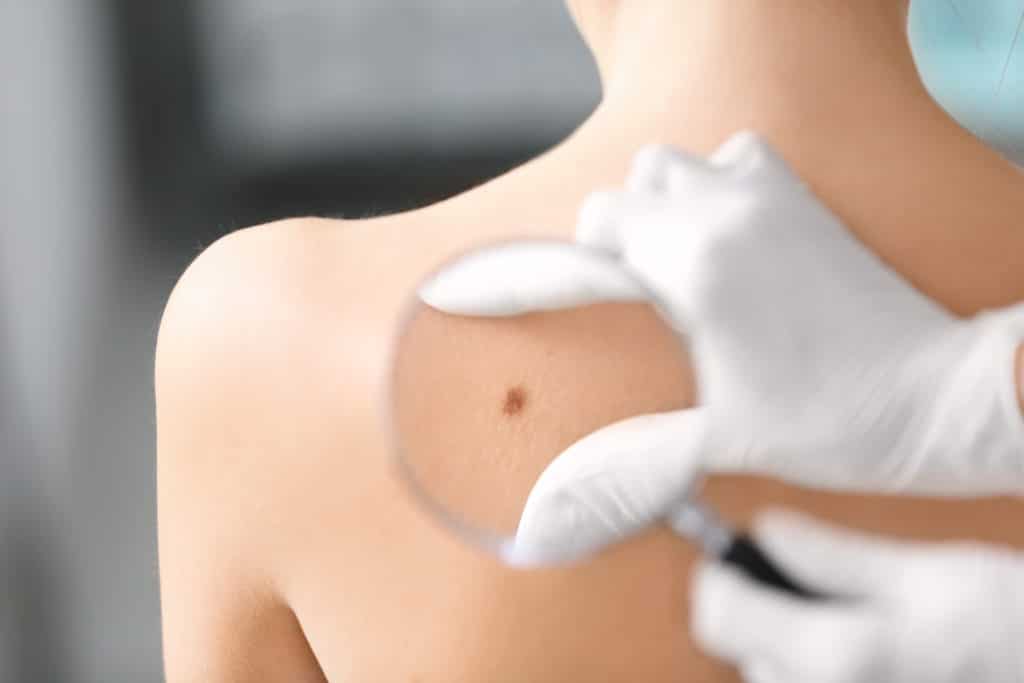Moles occur when skin cells cluster together, forming a patch of skin that may appear brown, red, or even black in color. The cause of moles is not always known, but genetics, sun exposure, and lifestyle choices may encourage their growth. Most people have at least one mole. The American Academy of Dermatology estimates 10-40 per person.
Topical moles can be shaved or burned off without much difficulty. Deeper moles may require surgical excision. In all cases, aftercare will be essential to prevent visible scarring.
Are Moles Dangerous?
By and large, skin moles are benign. Because they are noncancerous, their removal is typically cosmetic. However, if a mole changes shape or color, becomes itchy or numb, or otherwise causes you alarm, it is a good idea to have it evaluated by a medical professional. 9,500 people are diagnosed with skin cancer every day, many of whom initially mistook their melanoma for a mole.
Skin Cancer Removal
There are three primary types of skin cancer:
- Basal cell carcinomas
- Squamous cell carcinomas
- Melanoma
Basal cell carcinomas and squamous cell carcinomas are typically non-aggressive and often benign. Melanoma has a tendency to become aggressive, rapidly spreading to other parts of the body. This one type of skin cancer takes around 9,000 lives in the United States yearly. Removing any type of skin cancer is important, even when the lesion is nonaggressive.
What Happens When You Get Skin Cancer Removed?
Skin cancer is often like an iceberg. What you see on top may represent only a small portion of the total tumor. The goal of skin cancer removal is to eliminate all of the abnormal cells, which may require a more involved surgical procedure.
Skin cancer is removed all the way to the edges. This helps guard against its return, but may result in a larger surgical area. Reconstruction of the area through skin flaps or grafts can be used to improve the appearance of the area.
Aftercare, including lifestyle changes, may be necessary after skin cancer removal. We will work directly with you to ensure you are provided the support you need during this time.
If you suspect you have skin cancer or if you have a mole that is bothering you, please call Farrell Laser & Aesthetic Medicine Center at 717-732-9000 to schedule a consultation today. We serve Mechanicsburg and all surrounding areas of Pennsylvania.

